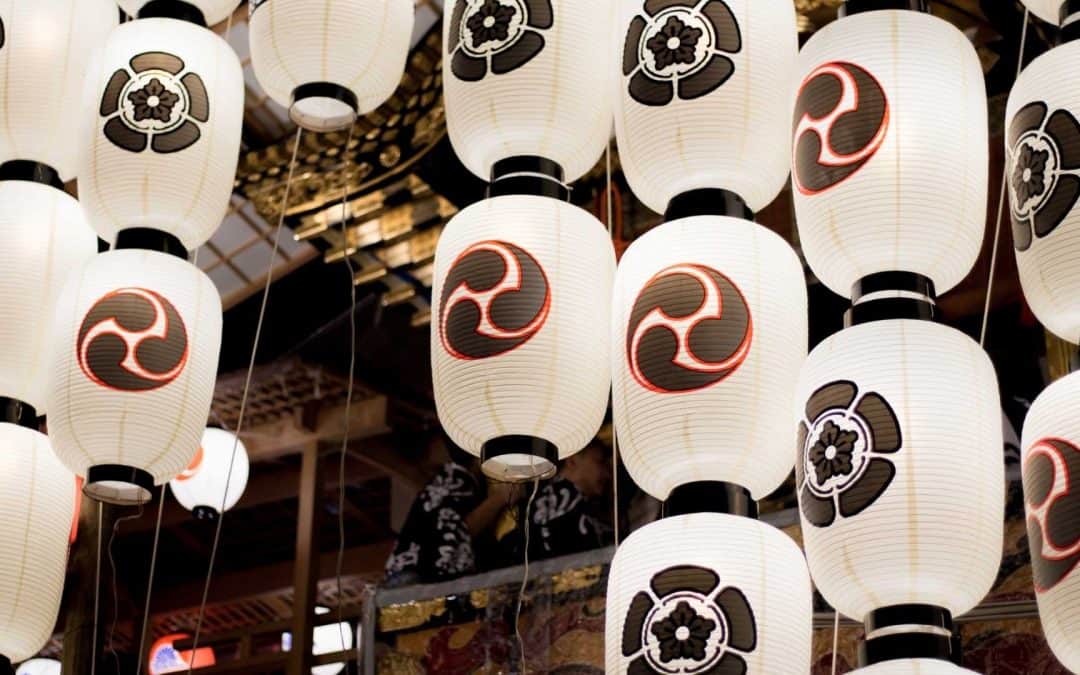Summer in Japan is the season for matsuri, traditional Japanese festivals. These Japan summer festivals range from local to national events, featuring food stalls, dances, parades, games, fireworks, and much more! Festivals are happening literally every single day, albeit on varying scales; some are small neighbourhood gatherings where only locals celebrate, while others are large-scale events that attract people from all over the city.
Large celebrations often involve processions where thousands of people dance, chant, and carry the shrine’s deity—known as ‘kami’ in Japanese—through the city. These processions may also feature breathtaking, colourful floats.
Festivals are a significant part of Japanese tradition and culture, largely untouched by foreign or modern influence. If you’re looking for an authentic, traditional Japanese experience, you’re sure to find it at a Japanese festival.
Here are some festivals we recommend!
One of the best ways to explore Tokyo is to visit the local areas and immerse yourself in the local culture. If you want to explore local areas, we have created scavenger hunt adventures personalised to your interests, filled with fun facts, clues and puzzles. If you’re curious, you can check out the games here! Check out the Flip Japan Games here! |
Gion Festival (Kyoto)
You can’t talk about Japan summer festivals in 2024 without mentioning The Gion Festival. It’s one of the oldest and most famous festivals in Japan, dating back to 869 and held annually since 970. Although it has seen interruptions throughout history, it has been a consistent, annual event since the late 16th century. Held in Yasaka Shrine in the famous Gion area of Kyoto, Japan’s cultural capital and former capital, it’s steeped in tradition and history.

The festival activities span the entire month of July, with the main events on the 17th and 24th when the festival’s renowned yamaboko floats parade through town. For history buffs, the three nights before the parade dates offer a unique opportunity as some traditional private houses open their doors to the public, giving a glimpse into their family heirlooms.
Awa Odori Festival (Tokushima)

‘Odori’ means ‘dance’ in Japanese, and as the name implies, the Awa Odori Festival is all about dance. Held from August 12 to 15 in Tokushima, Shikoku, groups of dancers clad in traditional Japanese costumes take to the streets to perform choreographed dances to the music of traditional Japanese instruments like the famous shamisen lutes and taiko drums. With over a million visitors each year, it’s one of the few places where you can enjoy traditional Japanese dance without breaking the bank.
Mitama Matsuri (Tokyo)

Running from July 13 to 16 at Yasukuni Shrine, the Mitama Matsuri is a visually stunning festival. The approach to the main hall is lined with 40-foot-high walls adorned with more than 30,000 lanterns, creating a mesmerising sight. Part of the larger Obon Festival which honours the dead, the festival also features attractions like a haunted house. However, note that Yasukuni Shrine’s ties to Japanese nationalism and war criminals might make some visitors uncomfortable. Otherwise, it’s a fantastic opportunity to immerse oneself in pre-war Japanese culture.
Sumida River Fireworks Festival (Tokyo)

The Sumidagawa Fireworks Festival, set for July 27, 2024, is a highlight of Tokyo’s summer events, drawing crowds along the banks of the Sumida River. Originating in the Edo period, this festival dazzles spectators with a dramatic display of fireworks launched from multiple sites along the river.
The event features two segments: an initial series of smaller-scale fireworks followed by a grand finale known as “Ryogoku no Teppo,” which showcases a spectacular choreography of colors, shapes, and patterns. The festival creates a festive atmosphere, enhanced by people dressed in yukata, enjoying the evening with picnics in nearby parks and streets. Prime viewing spots include Asakusa and around bridges like Sakurabashi and Umayabashi, where early arrival is recommended due to the popularity of these locations.
Azabujuban Noryo Matsuri (Tokyo)

Drawing a younger crowd, the Azabujuban Noryo Matsuri is a vibrant festival held over two days in late August (usually Saturday and Sunday). With streets sometimes blocked off, it’s a lively affair with plenty of food stalls offering delicacies from regions across Japan. It’s a fantastic opportunity for food lovers to sample dishes from different parts of Japan without leaving Tokyo.
Shinjuku Eisa Matsuri (Tokyo)

Rooted in Okinawan culture, the Shinjuku Eisa Matsuri may be held in Tokyo, but it offers a taste of Okinawa’s unique flavour. Honouring the spirits of Okinawan ancestors, the festival features traditional Okinawan foods, dance performances, costumes, and more. Despite being a young festival, starting in Tokyo in 2002, it has gained immense popularity, attracting one million visitors annually. If you can’t make it to Okinawa soon, this festival offers a glimpse into its rich culture.
Exploring the Vibrant Tapestry of Japan’s Summer Festivals!
As the sun shines brightly upon Japan, its vibrant summer festivals come alive with centuries-old traditions and spirited celebrations. From the historic elegance of Kyoto’s Gion Festival to the pulsating energy of Tokushima’s Awa Odori Festival, each event offers a captivating journey into Japan’s rich cultural heritage. Whether you’re strolling amidst the lantern-lit pathways of the Mitama Matsuri or indulging in the diverse flavours of the Azabujuban Noryo Matsuri, these festivals are an invitation to immerse yourself in the essence of Japan. So, step into the festivities, embrace the rhythms of tradition, and create cherished memories amidst the vibrant tapestry of Japan’s summer festivals.
Stay tuned for more information about Japan travel, Japanese culture, moving to Japan, living in Japan, Japanese language, and more.


Recent Comments